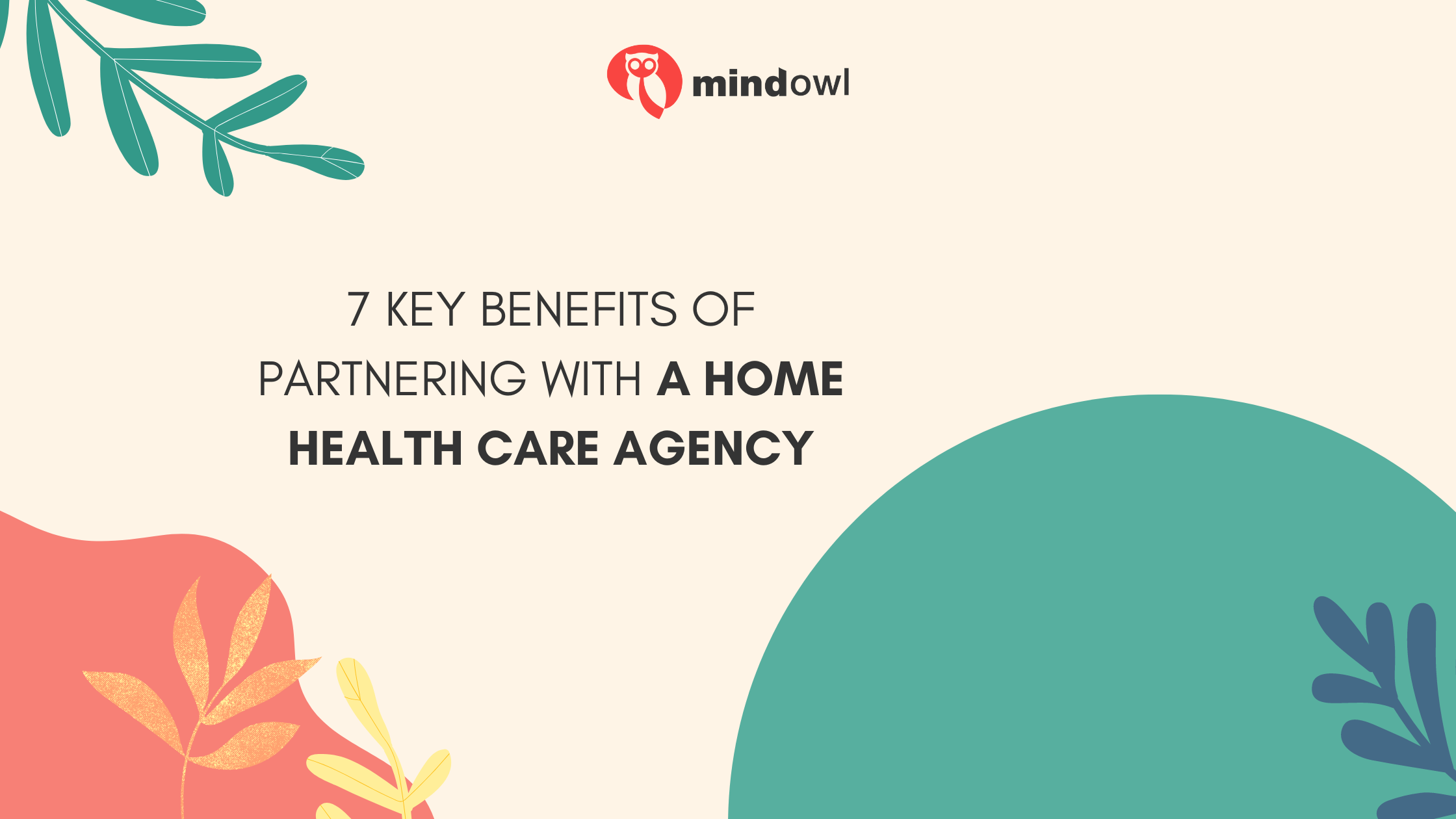As the demand for personalized health care rises, home health care agencies play a crucial role. These agencies provide tailored services to meet individual needs, allowing essential medical care in the comfort of home. Whether assisting with daily activities, managing chronic conditions, or offering nursing services, partnering with a home health care agency can significantly enhance quality of life. Exploring the critical benefits of these partnerships shows that they support patients and empower families and caregivers to navigate health journeys with confidence and peace of mind.

1. Personalized Care and Attention
One key advantage of partnering with a home healthcare agency is personalized care tailored to each patient’s needs. Home health care providers assess specific health conditions and preferences, creating customized care plans that fit individual situations. This attention ensures patients receive appropriate support at the right time, whether it’s help with daily activities, medication management, or specialized medical care. By partnering with agencies such as Boost Home Health, families can feel reassured that their loved ones receive not just generic care but a holistic approach prioritizing well-being, comfort at home, and better health outcomes. This personalized approach strengthens relationships between caregivers and patients, fostering open communication and trust essential for effective healing and support.
2. Cost Savings
One key reason to partner with a home health care agency is the potential for significant cost savings compared to traditional in-patient care. Home healthcare services usually have lower expenses since they eliminate hospital stays and the associated costs. Families can enjoy flexible scheduling, allowing services to be delivered as needed rather than paying for continuous care that may not be fully utilized.
Receiving care at home often results in quicker recovery times and fewer hospital readmissions, which can reduce overall healthcare costs. Many home healthcare agencies collaborate with insurance providers, simplifying access to service reimbursements. This financial efficiency makes home health care a smart and cost-effective choice for families managing their healthcare expenses.
3. Continuity of Care
Partnering with a home health care agency also ensures continuity of care, particularly for those with chronic conditions or recovering from acute illnesses. With consistent and reliable support, patients receive specialized medical attention, assistance with daily activities, and ongoing condition monitoring. This approach minimizes disruptions in treatment plans, reducing the risk of complications and improving overall health outcomes.

Home healthcare providers can work closely with primary physicians and other healthcare professionals to ensure seamless care coordination. This collaboration ensures that all parties are informed about changes in the patient’s condition or treatment plan, allowing for timely adjustments to maintain optimal health.
4. Comfort and Familiarity at Home
Receiving care in a familiar environment can significantly enhance patients’ well-being and comfort. Home is where most people feel safe and relaxed, leading to a more positive mindset that supports recovery. Additionally, staying at home allows for continuing daily routines, helping maintain a sense of normalcy and independence. This comfort is essential for patients with chronic conditions or mobility issues who may feel overwhelmed by unfamiliar hospital settings.
Partnering with a home healthcare agency means receiving personalized services and prioritizing individual preferences and needs. Patients can get specialized care while surrounded by their familiar belongings, pets, and loved ones, all contributing to a healing and supportive environment.
5. Ease of Access
Traveling for medical appointments can be challenging and tiring for patients with mobility limitations or chronic conditions. Partnering with a home health care agency eliminates the need to commute, as services are provided at home. This convenience reduces stress and discomfort, enabling patients to conserve energy for activities that improve their well-being and recovery.
Home healthcare agencies provide flexible scheduling, allowing patients to receive timely care without navigating complicated appointments or transportation issues. This easy access ensures patients get essential care when needed, leading to better health outcomes.
6. Support for Caregivers
Caring for a loved one can be physically and emotionally demanding, especially with complex medical conditions. Partnering with a home health care agency can ease some burdens on family members or caregivers, allowing them to focus on providing emotional support and quality time. Home health care providers offer respite services, giving caregivers essential breaks and reducing burnout. This support also includes education and resources, empowering caregivers with the knowledge and skills to manage their loved one’s conditions effectively.
7. Independence and Dignity
Receiving care at home promotes independence and dignity for patients, allowing them to maintain control over their daily routines and decisions. This autonomy is vital for mental well-being, especially in older adults who may lose independence due to health decline. Home health care services support rather than take over daily activities, empowering individuals to retain self-sufficiency and pride. This approach enhances quality of life and fosters a positive outlook on managing health challenges.
Partnering with a home healthcare agency offers numerous patient and family benefits. From personalized care and cost savings to comfort and independence, these partnerships support individuals in managing their health journeys with dignity and respect. As the demand for individualized care continues to grow, home healthcare agencies will undoubtedly play an essential role in the future of healthcare.
MindOwl Founder – My own struggles in life have led me to this path of understanding the human condition. I graduated with a bachelor’s degree in philosophy before completing a master’s degree in psychology at Regent’s University London. I then completed a postgraduate diploma in philosophical counselling before being trained in ACT (Acceptance and commitment therapy).
I’ve spent the last eight years studying the encounter of meditative practices with modern psychology.

